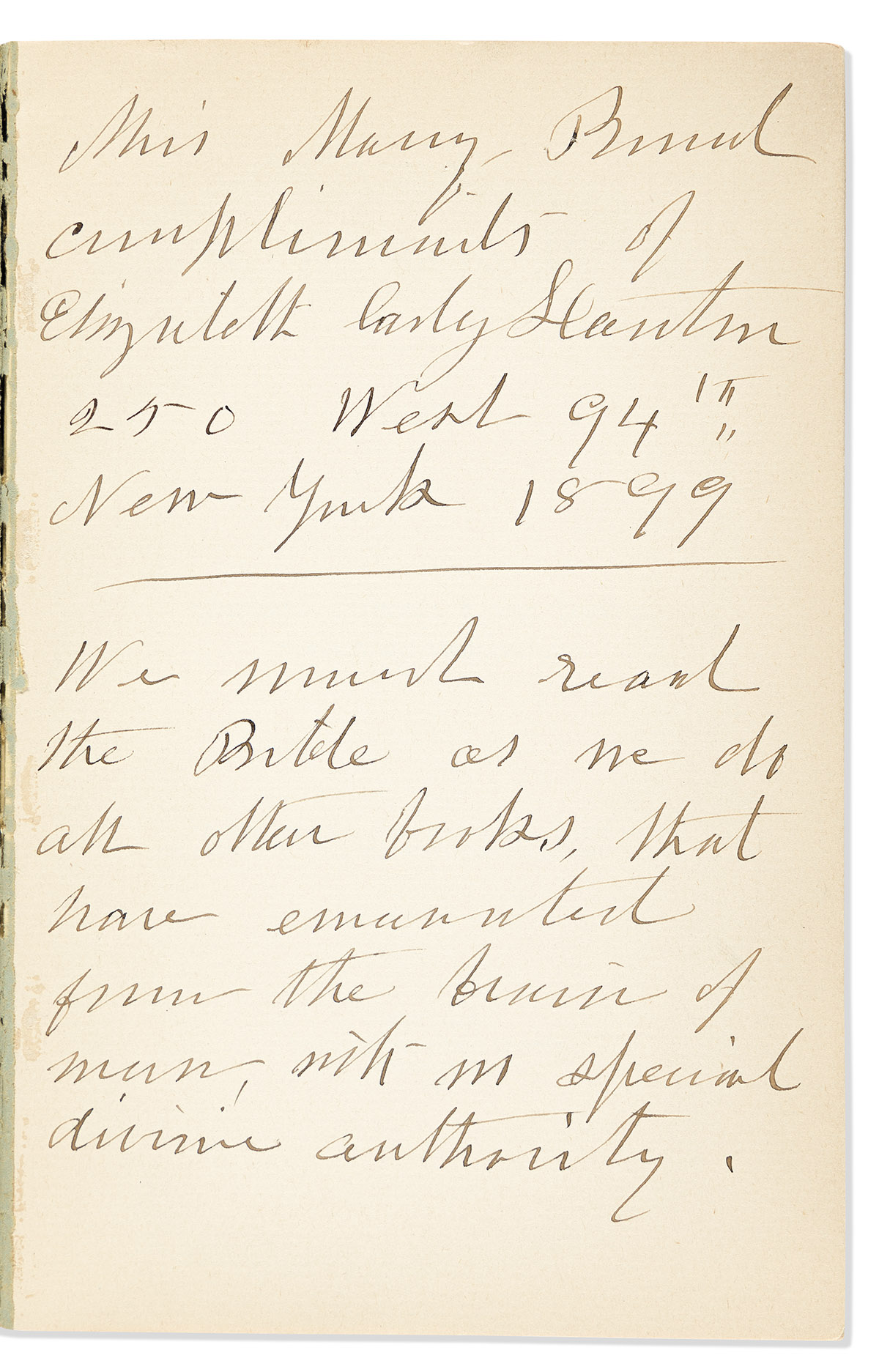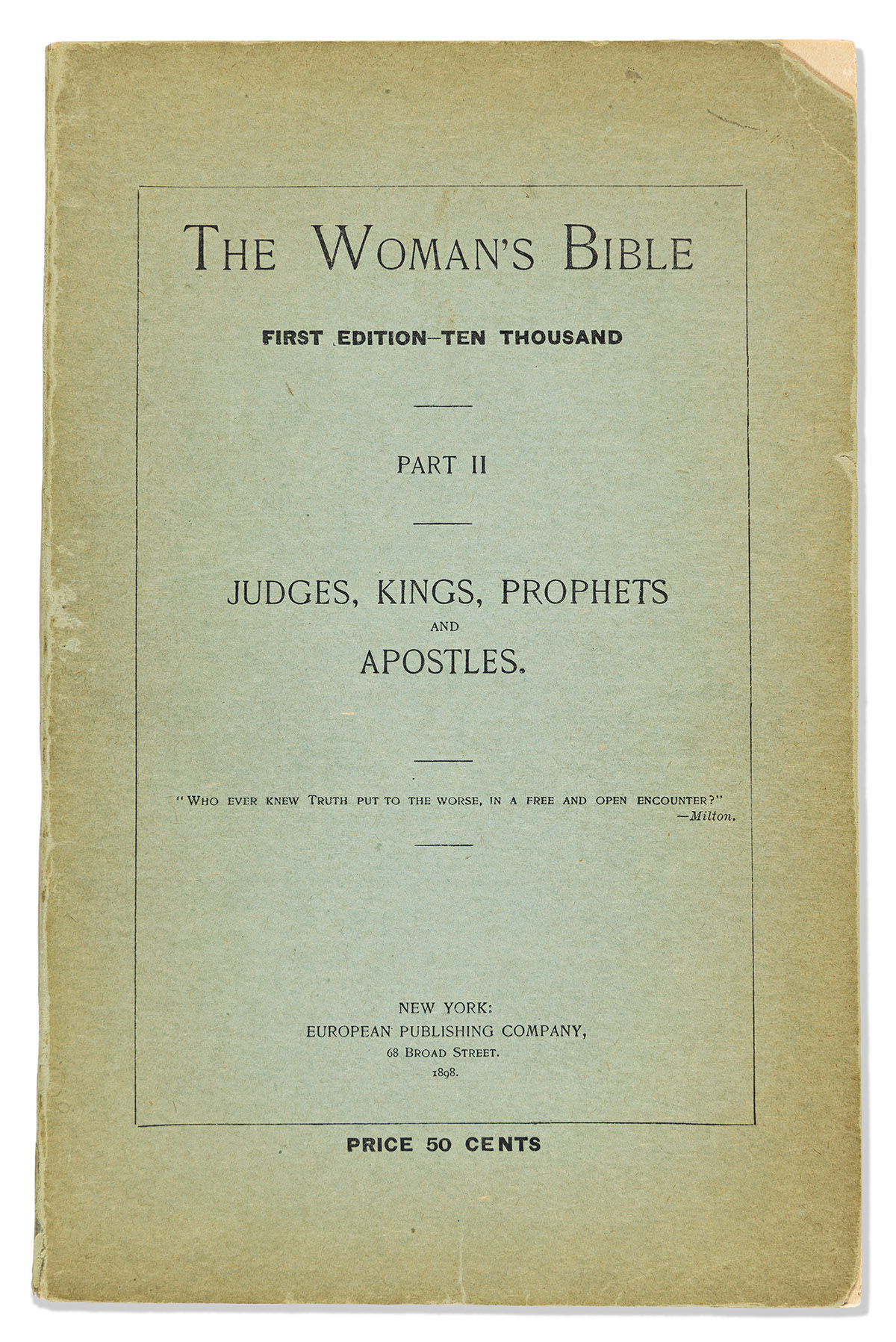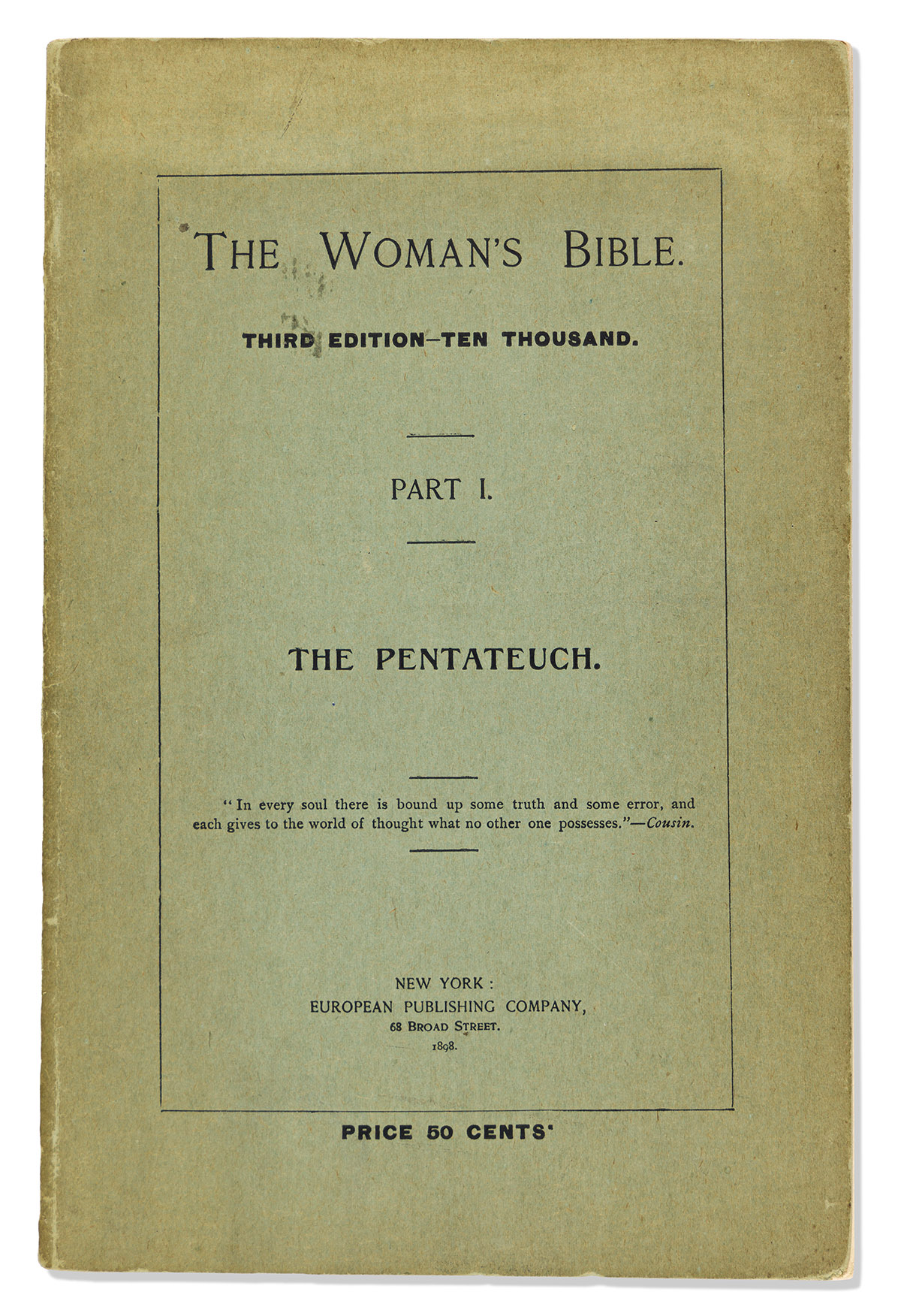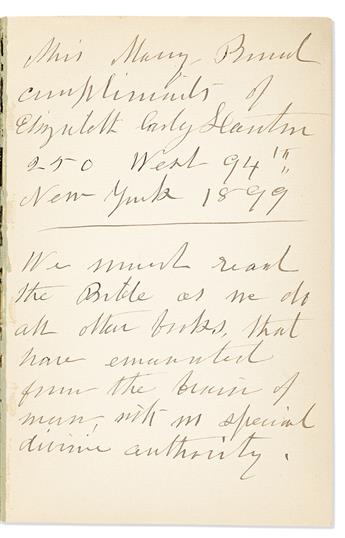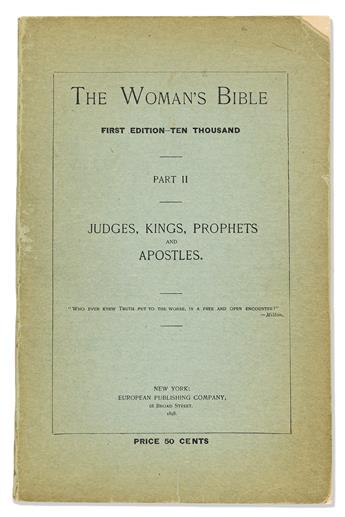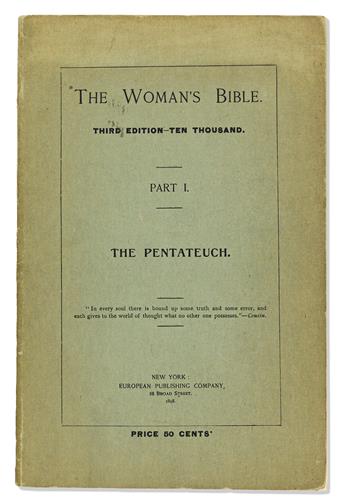Sale 2639 - Lot 142
Price Realized: $ 11,000
Price Realized: $ 13,750
?Final Price Realized includes Buyer’s Premium added to Hammer Price
Estimate: $ 7,000 - $ 9,000
Stanton, Elizabeth Cady (1815-1902)
The Woman's Bible, Signed and Inscribed by Stanton.
New York: European Publishing Company, 1898.
Octavo, two parts; first part signed with a twelve-line inscription in Stanton's hand, "Miss Mary Brand [?] compliments of Elizabeth Cady Stanton 250 West 94th New York 1899. We much read the Bible as we do all other books, that have emanated from the brain of man, with no special divine authority"; second part also signed and inscribed in Stanton's hand, "Compliments of Elizabeth Cady Stanton, born at Johnstown, NY, Nov. 12th, 1815. The Bible degrades Woman from Genesis to Revelation & yet women believe it was written by the fingers of God"; Part I third edition, ten thousand; Part II first edition, ten thousand; in publisher's limp paper covers, chipped corner to front and back covers of the second part, front joints weak; a delicate set of books, nicely preserved, 9 x 6 in. (2)
"The Woman's Bible is a collection of essays and commentaries on the Bible compiled in 1895 by a committee chaired by Cady Stanton, one of the organizers of the Seneca Falls Convention (the first Woman's Rights Convention held in 1848) and a founder of the National Woman Suffrage Association. Stanton's purpose was to initiate a critical study of biblical texts that are used to degrade and subject women in order to demonstrate that it is not divine will that humiliates women, but human desire for domination. In 'denying divine inspiration for demoralizing ideas,' Stanton's committee hoped to exemplify a reverence for a higher 'Spirit of all Good.'" (Quoted from https://library.hds.harvard.edu/exhibits/incomparable-treasure/woman%27s-bible)
Nonetheless, The Woman's Bible was not well-received by everyone. Many members of clergy felt that the whole concept was sacrilegious, beginning with the title. "Stanton's sustained ideological assault on religious orthodoxy, especially her publication of The Woman's Bible in 1895 and 1898, represented her last but not least controversial attempt to lessen the influence of what she believed constituted the ideological basis for women's subordination in 19th century America. That she was censured and ridiculed by sister suffragists for doing so made this last crusade one of the more painful, and perhaps invigorating, of her life." (Quoted from Maureen Fitzgerald's foreword to The Woman's Bible, Boston: Northeastern University Press, 1993.)
The Woman's Bible, Signed and Inscribed by Stanton.
New York: European Publishing Company, 1898.
Octavo, two parts; first part signed with a twelve-line inscription in Stanton's hand, "Miss Mary Brand [?] compliments of Elizabeth Cady Stanton 250 West 94th New York 1899. We much read the Bible as we do all other books, that have emanated from the brain of man, with no special divine authority"; second part also signed and inscribed in Stanton's hand, "Compliments of Elizabeth Cady Stanton, born at Johnstown, NY, Nov. 12th, 1815. The Bible degrades Woman from Genesis to Revelation & yet women believe it was written by the fingers of God"; Part I third edition, ten thousand; Part II first edition, ten thousand; in publisher's limp paper covers, chipped corner to front and back covers of the second part, front joints weak; a delicate set of books, nicely preserved, 9 x 6 in. (2)
"The Woman's Bible is a collection of essays and commentaries on the Bible compiled in 1895 by a committee chaired by Cady Stanton, one of the organizers of the Seneca Falls Convention (the first Woman's Rights Convention held in 1848) and a founder of the National Woman Suffrage Association. Stanton's purpose was to initiate a critical study of biblical texts that are used to degrade and subject women in order to demonstrate that it is not divine will that humiliates women, but human desire for domination. In 'denying divine inspiration for demoralizing ideas,' Stanton's committee hoped to exemplify a reverence for a higher 'Spirit of all Good.'" (Quoted from https://library.hds.harvard.edu/exhibits/incomparable-treasure/woman%27s-bible)
Nonetheless, The Woman's Bible was not well-received by everyone. Many members of clergy felt that the whole concept was sacrilegious, beginning with the title. "Stanton's sustained ideological assault on religious orthodoxy, especially her publication of The Woman's Bible in 1895 and 1898, represented her last but not least controversial attempt to lessen the influence of what she believed constituted the ideological basis for women's subordination in 19th century America. That she was censured and ridiculed by sister suffragists for doing so made this last crusade one of the more painful, and perhaps invigorating, of her life." (Quoted from Maureen Fitzgerald's foreword to The Woman's Bible, Boston: Northeastern University Press, 1993.)
Exhibition Hours
Exhibition Hours
Aliquam vulputate ornare congue. Vestibulum maximus, libero in placerat faucibus, risus nisl molestie massa, ut maximus metus lectus vel lorem.



